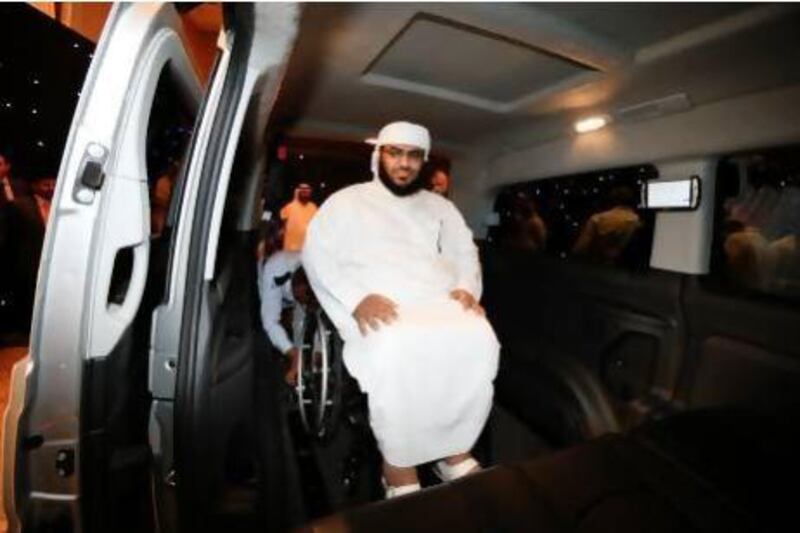ABU DHABI // Abdulla Al Saad has not been able to move his legs since 2006 when he was in a car crash on his way to Dubai.
A senior public relations officer at the Department of Transport, Mr Al Saad, 29, said he was not wearing a seat belt, which could have reduced the risk of serious injury.
"I was in a hurry to go to Dubai and was going at 140kph," he said. "Another car slowed down and I tried my best to avoid hitting him."
Mr Al Saad lost control of the vehicle and hit a metal barrier in Al Rahba. He said he accepted his disability from day one.
"I was more worried about how my family would react to the news back then," he said.
He injured his spinal cord and this left him a paraplegic. After surgery, he went to Germany for 10 months of rehabilitation.
He counts himself lucky to have survived the crash and considers his disability a challenge.
"I don't see any difference between my life before and after the injury," he said. "I'm successful and back to my normal life."
Mr Al Saad, who owns two cars with adaptive devices, learned to drive a modified vehicle in Germany. His cars are fitted with a hand control that allows him to accelerate and brake, and a normal steering wheel.
"I broke my back since I was not wearing a seat belt in 2006," Mr Al Saad said. "Now I always wear one when I drive."
Two in five drivers, and even more front-seat passengers, flout the law by refusing to wear a seat belt, a UAE survey found.
The study, Seat belt utilisation and awareness in UAE, found 61 per cent of drivers and 43.4 per cent of front-seat passengers wore seatbelts.
The highest rates for wearing of seat belts were recorded in Abu Dhabi and Dubai. They were 77.3 per cent for drivers and 60.7 per cent for passengers in Abu Dhabi, and 80.9 per cent for drivers and 57.3 per cent for passengers in Dubai.
The lowest usage was recorded in the smallest emirate, Umm Al Quwain - 36.7 per cent for drivers and 24.2 for front-seat passengers.
Dr Salaheddin Bendak, an author of the study and an associate professor at the Department of Industrial Engineering at the University of Sharjah, said that while the rates were encouraging when compared with other countries in the region, introducing a seat-belt law for rear-seat passengers would also help prevent and reduce the number of road injuries and deaths.
At the moment only drivers and front-seat passengers are required to buckle up, with a Dh400 fine and four black points for offenders.
A proposal would make seat belts compulsory for all passengers, with a fine of Dh400 for those who break the rule.
Capt Juma Al Suwaidi, head of the drugs-awareness section at Dubai Police, said although child car seats were not mandatory, children under the age of 12 were not allowed to travel in the front and had to wear seat belts in the back seat.






